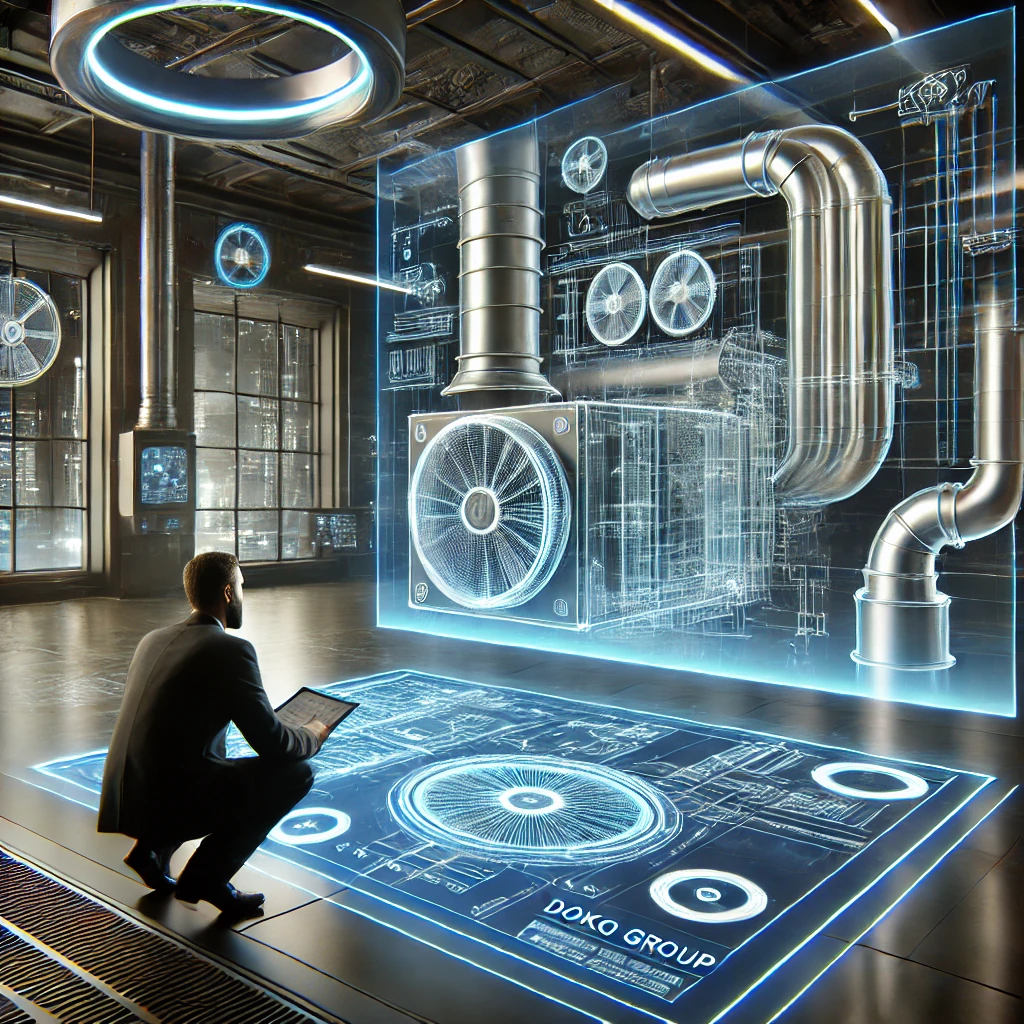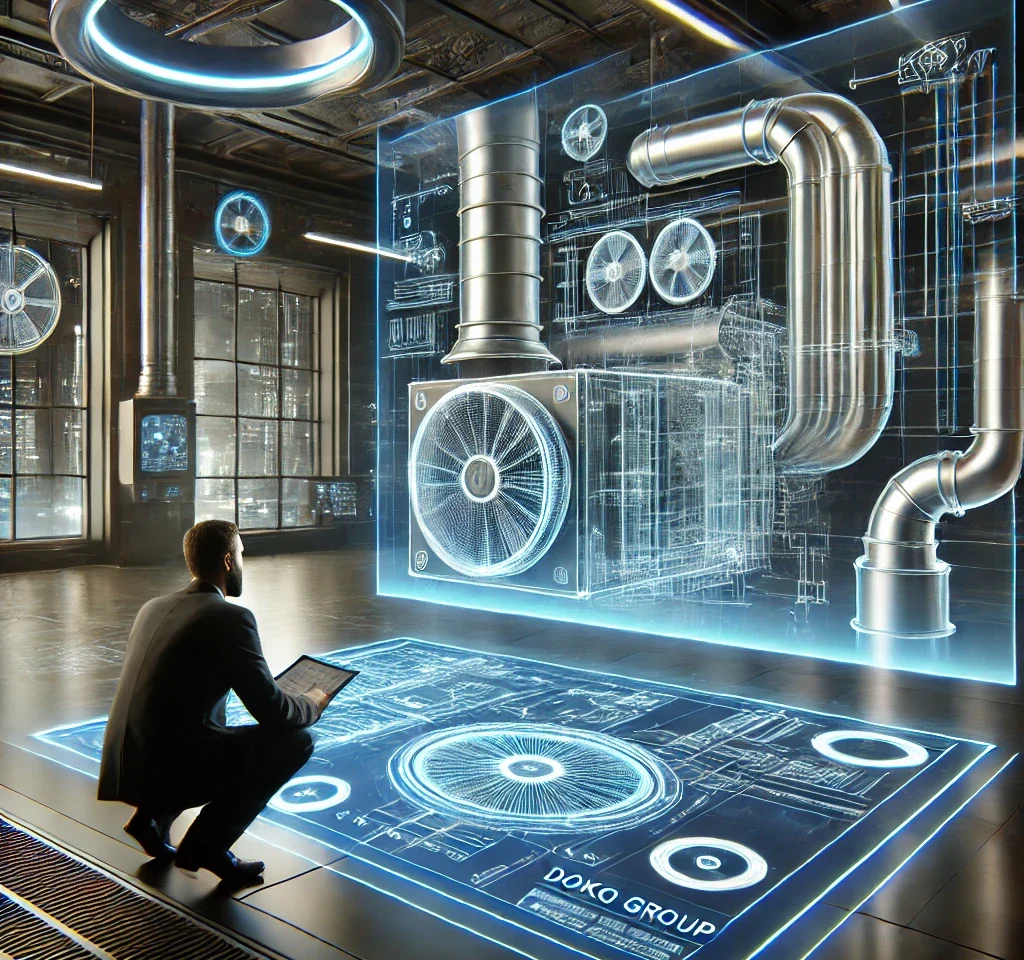The Future of HVAC Engineering: Efficiency, Sustainability, and Innovation
Introduction
HVAC (Heating, Ventilation, and Air Conditioning) engineering is at the heart of modern building comfort and efficiency. From towering skyscrapers to industrial complexes, HVAC systems ensure optimal temperature control, indoor air quality, and energy efficiency. With advancements in technology and growing environmental concerns, the HVAC industry is evolving rapidly, shaping a future that prioritizes sustainability, smart solutions, and improved performance.
Key Innovations in HVAC Engineering

1. Energy-Efficient Systems
As global energy consumption rises, the demand for energy-efficient HVAC systems is greater than ever. Modern systems utilize high-efficiency components, such as:
✔ Variable Refrigerant Flow (VRF) systems that adjust refrigerant flow based on real-time demand.
✔ Geothermal HVAC that leverages underground temperatures for heating and cooling.
✔ Smart sensors & automation to optimize system performance and reduce wastage.
2. Smart HVAC & IoT Integration
The integration of IoT (Internet of Things) with HVAC systems is transforming how buildings are managed. Smart thermostats, predictive maintenance, and remote monitoring allow homeowners and facility managers to:
✔ Reduce energy bills through real-time adjustments.
✔ Detect system failures before they cause major issues.
✔ Improve occupant comfort with AI-driven climate control.
3. Sustainable Refrigerants & Eco-Friendly Solutions
Traditional refrigerants contribute to global warming and ozone depletion. The HVAC industry is shifting towards environmentally friendly alternatives like:
✔ R-32 and R-1234yf – Low global warming potential (GWP) refrigerants.
✔ CO₂ and Ammonia-based cooling systems – Natural and efficient refrigerants.
✔ Solar-powered HVAC systems – Using renewable energy to reduce carbon footprints.
The Role of HVAC Engineers in Modern Construction
HVAC engineers play a crucial role in designing and implementing efficient climate control systems. Their responsibilities include:
✅ Conducting load calculations to determine the heating and cooling needs of a building.
✅ Selecting and designing HVAC equipment that aligns with energy efficiency standards.
✅ Integrating ventilation strategies to enhance indoor air quality and occupant health.
✅ Utilizing software like HAP, AutoCAD, and Revit MEP to optimize HVAC designs.
Why HVAC Engineering is More Important Than Ever
With climate change concerns and rising energy costs, the HVAC industry must adapt to new regulations and technologies. Modern HVAC engineers are at the forefront of developing solutions that:
🔥 Reduce carbon emissions.
🌍 Improve building sustainability.
🏡 Enhance comfort & air quality.
📉 Lower energy consumption & costs.
Final Thoughts
HVAC engineering is no longer just about heating and cooling—it’s about efficiency, sustainability, and innovation. Whether designing smart buildings or implementing green HVAC solutions, engineers are shaping a future where climate control is smarter and more sustainable than ever.
🔥💡 Want to learn more about cutting-edge HVAC solutions? Follow us for more updates on engineering trends and innovations!
This post is visually appealing, well-structured, and informative, making it ideal for WordPress. If you want specific images or formatting, I can refine it further!











No comments
Be the first to comment.